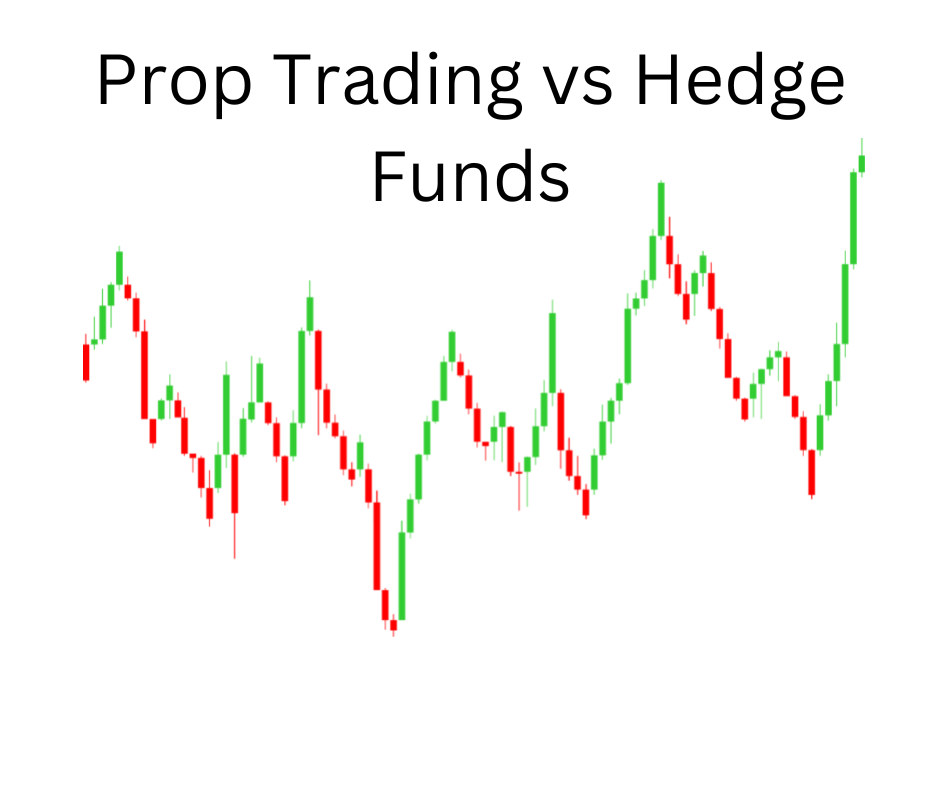Welcome to the great debate of our time: Prop Trading vs. Hedge Funds. As someone with personal experience in both worlds, I can tell you that choosing between them can be a real challenge. In this article, I’ll walk you through the similarities and differences between these two investment vehicles, and share the pros and cons of each to help you decide which one is right for you.
Prop Trading vs. Hedge Funds
Before diving into the nitty-gritty details, let’s first establish a basic understanding of what Proprietary Trading and Hedge Funds are.

How Are Prop Trading and Hedge Funds Similar?
Proprietary trading (or prop trading) and hedge funds share some similarities, as they both involve professional traders and fund managers making investments to generate returns for their clients or firms. In both cases, they use advanced trading strategies and leverage sophisticated tools to maximize profits. However, the way they operate and their objectives can be quite different.
What Does Proprietary Trading Entail?
Proprietary trading refers to a financial firm or a bank that trades stocks, bonds, currencies, commodities, or other financial instruments using the firm’s own capital, rather than clients’ funds. The primary goal of prop trading is to generate profits directly for the firm and its traders.
How does prop trading work
In a prop trading firm, traders typically have access to the firm’s resources, such as research, technology, and capital. The firm may provide these resources in exchange for a percentage of the trader’s profits. This setup allows prop traders to take more significant risks and potentially earn higher returns compared to individual traders.
What is a Hedge Fund?
A hedge fund is a pooled investment vehicle managed by a professional investment manager. The manager uses various investment strategies to achieve high returns while minimizing risk. Hedge funds cater to accredited investors, institutions, and high-net-worth individuals who can afford the high minimum investment requirements.
How Does a Hedge Fund Work?
Hedge fund managers utilize a range of strategies such as long/short equities, event-driven, global macro, and more. They may use leverage, derivatives, and short-selling to enhance returns and manage risk. Hedge funds typically charge a management fee (usually 2% of assets under management) and a performance fee (around 20% of profits).
Understanding What Proprietary Forex Traders Do
Proprietary forex traders are a subset of prop traders who focus specifically on trading currencies in the foreign exchange market. These traders employ various strategies, such as technical and fundamental analysis, to capitalize on fluctuations in currency values. They often have access to the same resources and support as other prop traders within their firm.
Prop Trading Vs. Hedge Fund Requirements and Fees
One significant difference between prop trading firms and hedge funds is the requirements and fees associated with each.
Types of Proprietary Trading Firms
There are two primary types of prop trading firms: those that require traders to contribute their own capital (known as “backed” traders) and those that provide the capital (known as “non-backed” traders).
Is a prop trading firm a hedge fund?
No, a prop trading firm is not a hedge fund. While they may share some similarities, the primary difference lies in the use of capital. Prop trading firms trade with the firm’s own capital, while hedge funds trade with their clients’ capital. Additionally, hedge funds cater to a different clientele (accredited investors and institutions) and charge fees based on assets under management and performance.
Conclusion
In the end, the choice between prop trading and hedge funds depends on your personal preferences, risk tolerance, and investment objectives. Prop trading offers the potential for higher returns and more flexibility, but it also comes with higher risks and may require a significant upfront capital commitment.
On the other hand, hedge funds provide a more structured investment approach, focusing on risk management and catering to a more exclusive clientele. However, they often have high fees and minimum investment requirements.
When deciding between prop trading and hedge funds, consider the following factors:
Capital Requirements: If you have limited capital or prefer not to risk your own funds, hedge funds might be a more suitable option. In contrast, prop trading often requires a capital contribution, especially in “backed” trading firms.
Risk Tolerance: Prop trading can be riskier due to the use of leverage and aggressive trading strategies. If you prefer a more conservative approach, hedge funds might be a better choice.
Investment Goals: Hedge funds generally aim to provide consistent returns and risk management, while prop trading seeks to maximize profits. Determine your investment goals and choose the option that aligns with them.
Regulation and Transparency: Hedge funds are subject to regulatory oversight and reporting requirements, offering investors a certain level of transparency. Prop trading firms, on the other hand, may be less transparent and are not subject to the same regulatory scrutiny.
Access to Resources: Prop trading firms often provide traders with access to advanced trading tools, research, and technology. If these resources are important to you, prop trading may be a more appealing choice.
Ultimately, there is no one-size-fits-all answer to whether prop trading or hedge funds are better. It depends on your individual circumstances, goals, and preferences. By weighing the pros and cons of each option and considering your unique situation, you can make an informed decision and choose the investment path that’s right for you.
